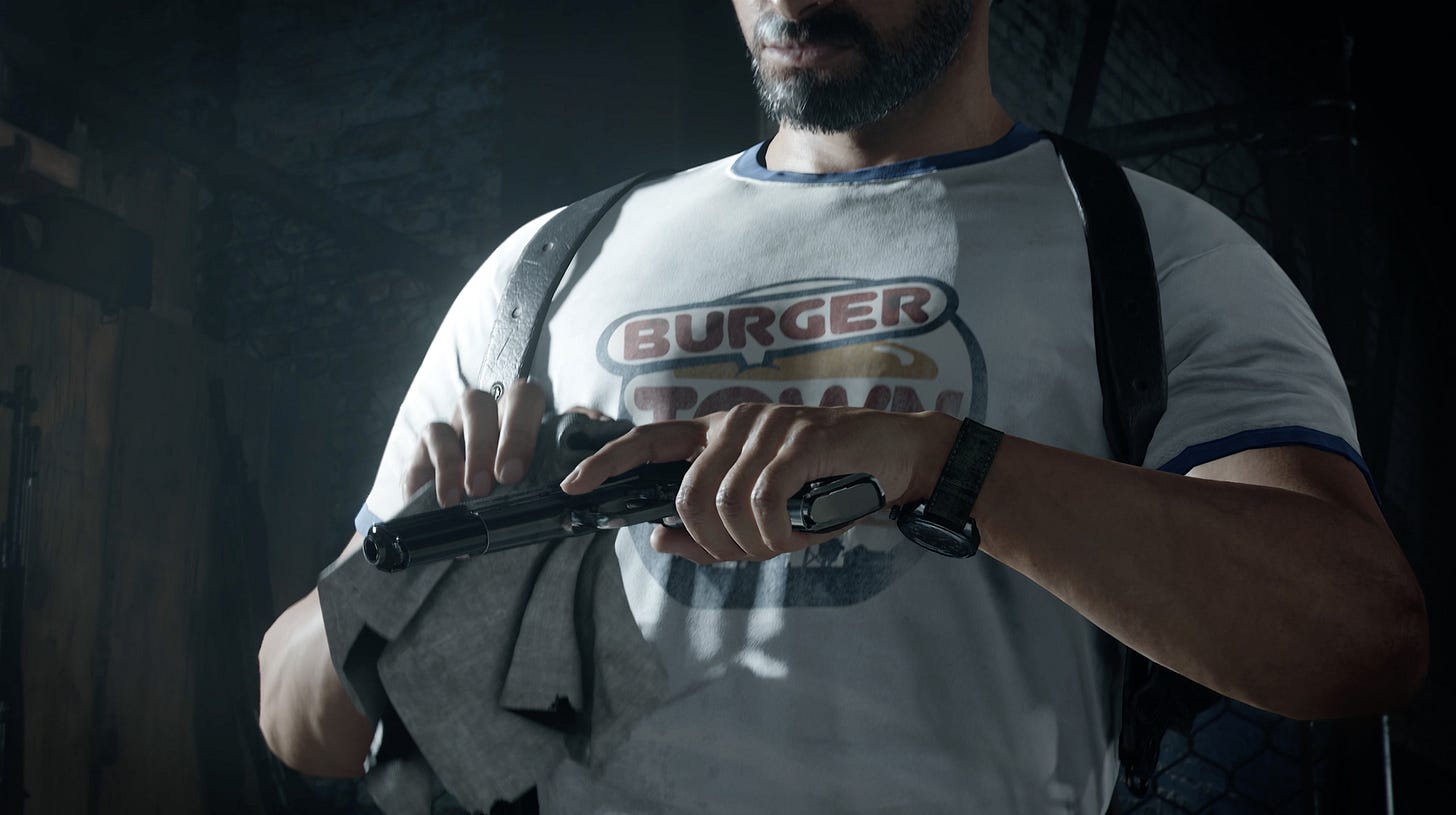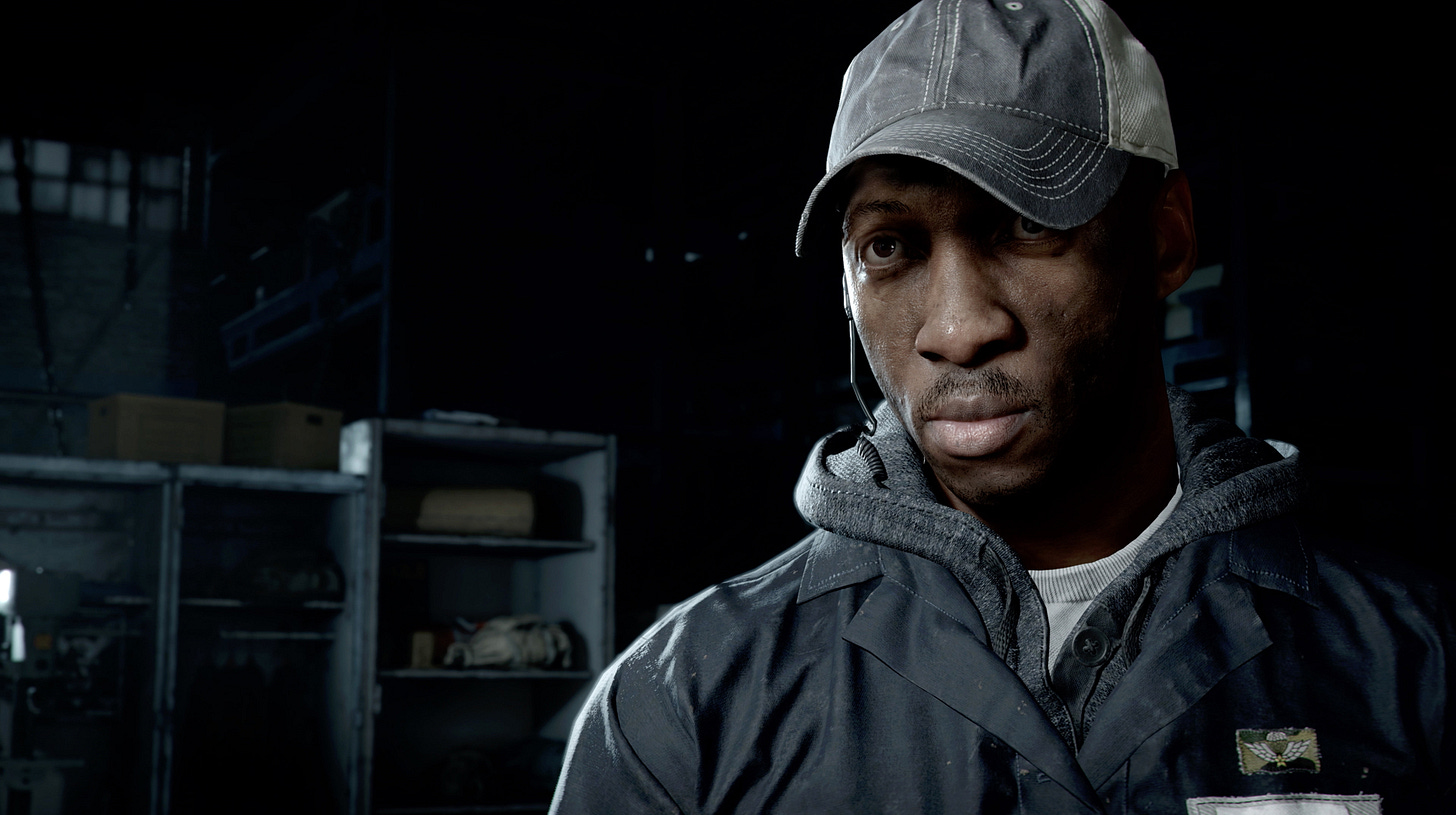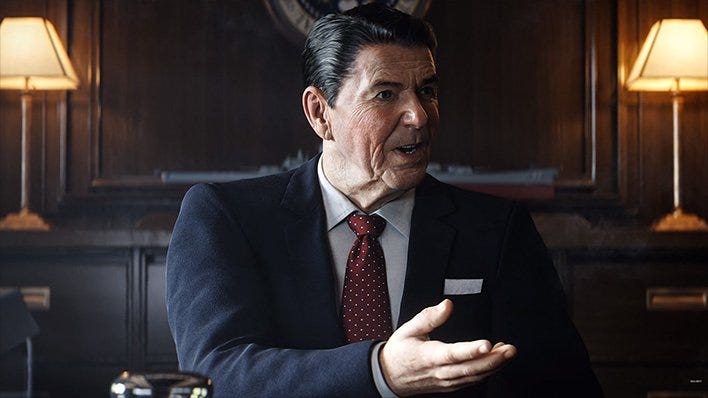Call of Duty: Black Ops Cold War Review
A Chilling Adventure Into The Mind and Spirit of Patriotism
Call of Duty: Black Ops Cold War is set against the backdrop of the Vietnam War, Communist Cuba, the Iron Curtain, and the Soviet Union. It is a brief glimpse into the declassified and ethically dubious programs the Central Intelligence Agency (CIA) ran in the 1950’s to the late 1980’s and the extent the United States would have been willing to go to preserve the way of life had the Soviet Union been more aggressive. Ultimately, it is a snapshot of the ugly side of patriotism.
Cold War is ripe with action and suspense while being easily playable for those who have difficulty with first person shooters (FPS) or seeing difficulties such as color blindness. The campaign can be accomplished within a day but is just as engaging and intriguing on the replay with details skillfully woven into the background and dialogue. The double entendres are par for the course, but for those expecting a simple point-and-shoot, it takes Call of Duty to the next level.
My score: 8.0 out of 10.
With all that said, you can stop reading this review right now and avoid any protentional spoilers.
SPOILERS!
The campaign starts us off before we make our character. Qasim Javadi, who my stream on Twitch loving declared a pedophile (1:14:06), is our first target. Now, this was exactly the beginning I expected of Call of Duty. A simple: this is our guy, let’s kill him. It is the second half of this mission that truly shocked me in my second playthrough. After we kill, recruit, or release Qasim Javadi, we go after Arash Kadivar. This tiger loving terrorist with a stache that puts porn stars to shame is a red herring. Our first view of him is pulling up in a car, shooting the two passengers inside, and going to the cargo hold of the airplane. No matter what we do, no matter how perfectly aligned our shot is, Qasim won’t die until Russell Adler, voiced by Bruce Thomas, shots him in the head.
Now, this is where Cold War gets fascinating. Adler tells Mason and Woods to find any survivors. In the original playthrough, I didn’t understand what that meant. Just figured it was a typical military thing. What it actually meant is that the non-playable characters (NPCs) we saw get shot in that car weren’t just any NPCs. Well, maybe the one guy. Bell, our customizable character, is a Soviet terrorist who happened to get the short straw in the form of Qasim being jealous that Perseus liked and trusted Bell over him. Given that Qasim resorted to backstabbing, it isn’t hard to see why Bell was his favorite.
Immediately after this mission, we’re introduced to the team.
Russell Adler is the fireteam’s leader. A cold-hearted, no-nonsense son-of-a-bitch, Adler is called America’s monster for a reason—and it has nothing to do with the scar on his face. Adler was immediately one of my favorite characters.
In terms of depth, he’s got more than the Mariana Trench. Beneath the cocky, confident veneer is a man that is willing to—and will—kill even his allies to secure America’s future. Every interaction with him as Bell is calculated. He says the right words with the smoothness of fine whiskey and the precision of a brain surgeon’s scalpel, and, even at the end, I couldn’t find it in myself to kill him. Adler is the handler of Bell. He relies on the sick Pavlov’s Bell experiment that robs our player character of their memories. Their family, their friends, their home, all gone in the name of American patriotism. I can’t fault the man for it either as the alternative was to have hundreds of millions die when Project Green Light went off. Between one person’s identity and the lives of hundreds of millions, Adler’s actions are justifiable despite being ethically immoral.
Helen Park is MI6’s contribution.
A prodigy who entered Oxford at the tender age of 16, Park was a surprising addition to the game. She is everything a female James Bond would be with her quick wit and dry humor. It was impossible to not love her immediately, especially when you discover that the scar around her neck was due to an almost beheading by Madame Shell, who was then killed by fellow teammate Lazar. The flirting between Lazar and Park made the game more realistic, and that much more painful when you had to choose between Park and Lazar during the Cuba mission.
Her betrayal is perhaps the worst.
If you chose for Bell to be an MI6 agent, you learn that Bell picked up Park’s accent due to Park’s influence in the Pavlov’s Bell experiment. She essentially forced a bond onto Bell. Through dialogue options, you discover that you have vague flashes of Park. You remember her but from where you don’t know. Considering how Park was the first to truly seem accepting of you, this comes as a major blow. I couldn’t pick the option at the end to lie to Adler, which would have allowed me to set up a trap for the fireteam, because I knew I just couldn’t kill Park. Not after saving her.
Alex Mason and Frank Woods return.
You know these boys from Call of Duty: Black Ops. They weren’t anything special in this game, but you were able to play as Mason for a number of missions. Even the numbers returned. The game made this interesting because of the small hints throughout the game referencing other games. For example, there are newspapers and files containing information about the John F. Kennedy assassination, including having the passcode to the one locked area in the safe house be the date of the assassination (11/22/63). These clever little tie-ins made the game that much more enjoyable as we played as fan favorites.
The best part of having Woods in the game is that when you’re in the arcade in Anytown USA, he jokes with you about the retro games you find. It was a fun little add on considering the seriousness of the game. Never would have pegged Woods as a gamer, but 2020 is a year of surprises.
Jason Hudson, Alex Mason’s handler, appears again.
This stone-cold, unlovable hard ass is critical of our player character immediately. Not that anyone can blame him. With Bell a loose canon, it’s only a matter of time before we either do what the program intended, start WWIII by allowing Project Green Light to go operational, or die from being injected with too many mind altering substances (looking at you, Adler). He sets himself up as an anti-hero from the start. He doesn’t like you, and you don’t like him. However, Green Light is mostly his fault because who would have correctly guessed that the United States put several neutron bombs in allied countries on the off chance the Soviets invaded? Aside from conspiracy theorists, no one.
Eleazar “Lazar” Azoulay is a necessary sacrifice—or maybe not. You do you.
Lazar is a fascinating character because of his uncertainty. What does a Mossad agent have to do with the Soviet Union? Wouldn’t his specialties be suited elsewhere? We unfortunately never play as him, and our time with him is sadly cut short if we choose Park—or no one—over him. One scene that really certified him as a character rather than just another NPC waiting to die was the exchange between Park and Lazar. As I mentioned earlier, Park was nearly beheaded and it was Lazar who killed Park’s almost murderer. This scene was accidentally stumbled upon but one that was well placed (despite Park not telling us directly how she got her scar moments later in the dark room).
The casualness of Lazar really made him. He is a steadfast companion who can either insult or compliment you depending on how sneaky you are. On my first playthrough, I didn’t quite like him because of that. It had absolutely nothing to do with the piles of bodies stacked in the streets of East Berlin. Lazar’s death was a turning point in the game. It started to become real. Characters that we could interact with no longer there? Horrible. The worst thing is that he wasn’t just shot by the Cubans. He was most likely tortured. Then shot. The only reprieve we have is that his body was able to be recovered and President Reagan honored him for the hero he was.
Lawrence Sims is the stereotype of a Vietnam soldier. Young, brash, and living dangerous, Sims is the first character you team up with as Bell. The entire playthrough made me think of the young men who died in a war that we should never have been in had the French not fucked up and the Communists decided not to kill millions more. But it happened, and Sims is a stark reminder of it. His interactions are similar to Woods and Mason, who joke around with you. But he’s just a tad more serious. His offer of making a custom car was fun but disappointing when he reminded you that, yes, you’re broke. My opinion of him isn’t as deep as the others, but I hope on the replays that I will like him more. He seems very much like he’d be into The Grand Tour on Amazon Prime. I’d grab a beer with him.
Now onto the war crimes.
The basis of the entire game is Project Green Light. Now, what most people don’t know is that Green Light was an actual Cold War program. Established by President Eisenhower after WWII in the face of a serious threat by the Soviet Union, Green Light was a program that enlisted U.S. commandos to carry miniature nukes into warzones and denotate them. Retired Army Maj. Gen. David Einsel, who served as the Deputy Assistant Secretary of Defense for Atomic Energy from 1980 to 1985, confirmed the program. The portable nukes “were not the weapon of choice, and it had to be a very worthwhile mission or you weren't going to set it off in the first place,” General Einsel added.
Chilling.
Now, Project Green Light in Cold War is obviously different. For starters, they are portable nukes in the terms that Perseus is able to get ahold of one and reverse engineer the denotator to get the codes to dentate all the nukes remotely (not possible by the way) but they are stationary. For the casual player, this is a simple storyline. Find the Russian and stop the nukes. For those who know what Green Light is, this is a lot more alarming and realistic. It is a narrative choice that is wholly appropriate for a game set during the Cold War, and I doubt any other narration would have served the purpose quite as well as Green Light does.
The sense of urgency in the game isn’t there for a majority of the game until we get to “Break on Through”, which is an acid trip in on itself. It pulls the game together in a satisfying way as we discover that Adler and Park are just as ethically dubious as Perseus is. The added bonus of not listening to Adler’s narration is stumbling upon zombies. Which is terrifying by the way when you’re not expecting zombies outside of Zombies.
Overall, the game does a fantastic job of keeping the stakes realistic. The choices feel like they matter—and they do. While I strove for the perfect ending, there is the possibility for a truly evil ending. You can lie to Adler about where Perseus is and lure them into a trap in Duga, Ukraine. You can lie to him and die in Duga as well. Or you can tell the truth, stop the bombs, let Perseus escape, and die (or not) by Adler’s hands. Either way, the choices are there. Unlike Mass Effect 3.
In conclusion, if you’re still reading this review, Cold War achieved something that Modern Warfare wasn’t able to. It had real catharsis. The betrayal of Adler—and Park—was something expected but at the same time not. At least to the casual player. It was a standard story, but all the archetypes were there. The beats hit right where they were supposed to. It set out to do one thing, and it did it well. While we may never know the true extent to which patriots acted to keep us from descending into a nuclear war, we can appreciate the strength and courage of those brave men and women that risked their lives to stop the Soviet Union from drawing the Iron Curtain further.









